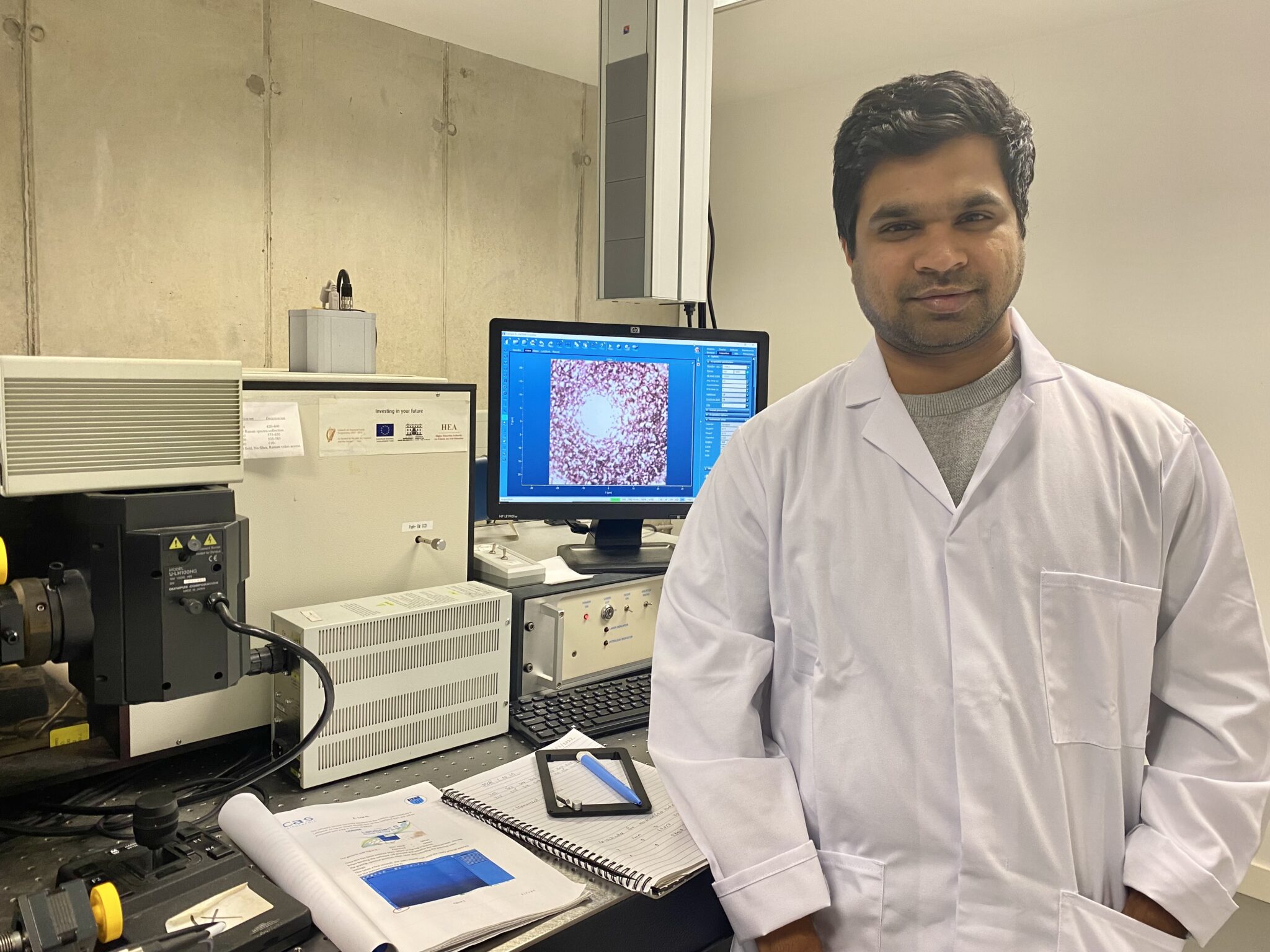Meet a Biophysicist: Dr. Dinesh Medipally
A biophysicist studies chemical and physical principles of living things and of biological processes, such as cell development, growth, heredity, and disease.
Get to Know a Scientist
It’s our pleasure to introduce you to Dr. Dinesh Medipally, a biophysicist and a Government of Ireland Postdoctoral Research Fellow at University College Dublin, Ireland. He earned his MRes in Biomolecular and Biomedical Sciences from the University College Dublin and PhD in Physics and Clinical and Optometric Sciences from Technological University Dublin. His research focus is on the development of novel technologies/methodologies for prostate cancer diagnosis and prognosis. For everyone who isn’t a biophysicist, let’s unpack all of that with some questions for Dinesh.
Science Connected: So, can you explain to our readers what you do?
Early screening of prostate cancer with prostate specific antigen and digital rectal examination is associated with poor sensitivity and specificity and there is also a considerable risk of over-diagnosis and over-treatment, which affects the patients quality of life. This highlights the need for a better tool for diagnosis of prostate cancer.
The main aim of my research is to develop novel technology for the accurate diagnosis of prostate cancer based on optical spectroscopy, liquid biopsies and machine learning procedures.
Early diagnosis can result in improved outcomes for prostate cancer patients because of earlier treatment. However, the PSA assay has low specificity and can lead to over-diagnosis of prostate cancer and over treatment of clinically insignificant (low risk) disease. My research will address a clinical need for new non-invasive tests using blood or urine samples to complement PSA screening for early detection of clinically significant prostate cancer. Such a test could prevent unnecessary biopsies and over-treatment of clinically insignificant prostate cancer.
SC: Why is your research is important?
Prostate cancer is the second most diagnosed cancer in men worldwide and the fifth leading cause of cancer related deaths with 1,276,106 prostate cancers diagnosed and 358,989 deaths in 2018. Despite recent developments, such as the 4K score and prostate health index (PHI) which improve PSA specificity, these assays measure only one biomarker so are inadequate to address the extreme molecular heterogeneity of this disease. Thus, there is a clinical need for new assays to identify clinically significant (intermediate and high risk) prostate cancer and this is especially important as prostate cancer incidence is expected to rise with an aging population.
SC: Looking to the future, if your work is successful, how might it improve people’s lives?
My research develops a novel assay for the identification of clinically significant prostate cancer and prevents the over-diagnosis and over-treatment of prostate cancer, which ultimately improves the patient’s quality of life.
SC: Why are you involved in cancer research, and what do you love most about it?
I love cancer research. I am very interested in developing new technologies/methodologies for cancer diagnosis and prognosis. My personal motto is, “My research will make a change in people’s lives.” This statement motivates me a lot and drives me for further advances. My childhood dream was to become a crime investigator. This later transformed into a cancer investigator, however, this investigator attitude helped me to tackle the complex research problems.
SC: What would you tell a young person interested in pursuing a career as a biophysicist?
Be motivated. This research field is complex, so motivation is an important driving factor. Apart from the subject-specific knowledge, I always recommend developing key interpersonal skills like problem-solving, communication, time management etc.
SC: What do you enjoy doing in your free time?
I enjoy walking and listening to science and technology related seminars and podcasts.
SC: What might people be most surprised to learn about you?
Unconsciously, I will chant my wife’s name when stuck on a problem.
SC: That’s awesome. Thank you, Dinesh, for letting our readers get to know you and for the work you’re doing to improve the lives of prostate cancer patients!
Learn more about biophysics
Click the links below to learn more about current research being done by other biophysicists.
Pathogenic Triggers of Bacterial DNA Discovered– Bacteria, those mysterious, microscopic creatures living in, on, and around us, are very often our benign neighbors with whom we quietly cohabitate and occasionally exchange mutual support. Occasionally, bacteria become pathogenic and infect their hosts, and if we are their hosts, we get sick.
Did Life On Earth Start as an RNA World?– To understand how life began, we must look far back in time. Back to a time when RNA, not DNA, might have been the building block of life.




